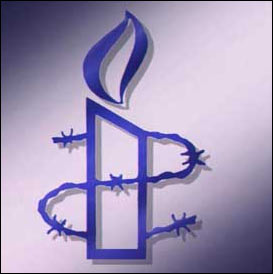Amnesty International: Council of Europe must remember about Belarusian political prisoners
On June 23 PACE deputies will vote on the issue of returning Special Guest status to Belarus.
Whatever the result of the vote would be, the human rights organisation “Amnesty International” calls upon the Assembly not to give up attempts to convince Belarus of necessity to announce official moratorium on capital punishment, and in the future – to abolish capital punishment. Besides, the Assembly should join in calls on immediate and unconditional release of 11 persons recognized as prisoners of conscience by Amnesty International, the statement of the organisation reads, “Viasna” informs.
Capital Punishment
4 persons were executed in Belarus in 2008. Despite of the gradual decrease of the number of executions and the fact that since 2008 no executions have taken place, the government still hasn’t imposed an official moratorium on death penalties.
“Amnesty International” calls upon the Belarusian authorities to impose a moratorium on all capital punishments, and in the future to abolish capital punishment, in keeping with the resolutions of the UN General Assembly 62/149 and 63/168 adopted in 207 and 2008. Death sentences to all prisoners in a death ward are to be substituted by imprisonment term immediately.
Prisoners of conscience
11 young people took part in an unauthorized demonstration against the introduction of a Presidential decree concerning tax and employment regulations for small businesses, which took place on 10 January 2008, and were sentenced under Article 342 of the Criminal Code for "taking part in or organizing actions that gravely disturb public order" and sentenced to between one and a half and two years of restricted freedom. Artsyom Dubski, Mikhail Pashkevich, Tatyana Tishkevich, Paval Vinahgradau, Alyaksei Bondar, Mikhail Kryvau, Ales Straltsou, and Ales Charnyshou were sentenced in April 2008; Mikhail Subach and Maxim Dashuk were sentenced in May 2008, and Alyaksandr Barazenka was sentenced in December 2008. The conditions of restricted freedom that are laid out in Article 48 of the Criminal Procedural Code are so restrictive that Amnesty International considers it to be a form of imprisonment.
Persons sentenced to restricted freedom, must stay at home all the time, when they are not working, pass alcohol and drugs tests when asked, and regularly report to policemen. Any travels except going to work or studies are banned for them, and it is forbidden for them to exceed the travel time. It is forbidden to visit sports institutions, attend sports events and other events, as well as to enter commercial enterprises where alcohol is sold, and visit other persons. Any violation of these conditions is punished by an official warning, and after three warnings they face a criminal responsibility for violation of the regime. A relevant police officer can change these conditions arbitrarily, making it very difficult for the convicted people to comply with the conditions of their sentence, and offering them no right of appeal against such decisions.
Amnesty International considers 11 young people, who are currently serving sentences of restricted freedom, to be prisoners of conscience. They have been sentenced to a punishment which amounts to imprisonment for the peaceful exercise of their rights to freedom of assembly and expression. Amnesty International calls upon their immediate and unconditional release.
The organisation calls upon the Belarusian parliament and authorities to solve these alarming problems and thus clearly demonstrate their intention to comply with the Council of Europe’s standards in the sphere of human rights.


















